For 50 years the Law Society Charity has supported an increasing number of charities in the legal sector. Some of the major charities are well known, such as Reprieve and Peace Brigades International (PBI) whose work saves lives: Reprieve represents people on death row and PBI volunteers give protection to human rights defenders threatened with assassination.
The charity supports registered charities whose principal aims are to support members in the areas of access to justice, legal education or human rights. With a small grant the charity focusses awards on charitable organisations which are unable to obtain funding from elsewhere, or do not have established or significant income streams and meet the needs of those from excluded, under-represented and disadvantaged groups. Small charities with new initiatives benefit from grants up to £5,000 which can have a major impact on their work. The charity also supports charitable projects supported by local law societies and directly legally related groups, whether in partnership with others or standing alone: for example, South London Law Society with the Law Association of Zambia on building pro bono services, or Huddersfield Law Society working with the Uganda Law Society, or Westminster & Holborn Law Society and the Colombia Caravana UK Lawyers Group working on protection of lawyers at risk.
Chair of the charity’s trustee board, former Law Society president Joe Egan, congratulated the volunteer board members who, over 50 years, have ensured the valuable work of the charity: 'I would like to thank the trustees, past and present, who for half a century have assisted charities that enable people to enforce their legal rights and in some cases save lives. I would also like to thank the thousands of solicitors who have enabled the work of the charity by donating client balances and leaving legacies, showing yet another aspect of the contribution that our profession makes to Society'.
The board is proud to have supported so many charities over the years. Recent grants have gone to a variety of charities, for example the AIRE Centre (Advice on Individual Rights in Europe), a specialist legal charity. The centre uses the power of European law to protect fundamental rights with advice, litigation and policy work. It litigates before the European Court of Human Rights and the European Court of Justice and has been involved in over a hundred cases since the organisation was founded in 1993. The centre provides a unique service on the interrelationship between the two European legal orders and international human rights law. The team litigates in the UK courts as well and has been involved in a significant number of third-party interventions in the Court of Appeal and the UK Supreme Court, as well as providing direct representation in the First Tier (Social Security and Immigration) Tribunals and the Upper Tribunal. The Law Society grant allowed the centre to intervene in the Upper Tribunal and Court of Appeal to establish that vulnerable individuals at risk of destitution could rely on the Charter of Fundamental Rights of the European Union to access benefits, where there was no right (or very limited) to other financial support.
A small charity offering help to vulnerable people needing immigration advice and support is Rainbow Migration. The charity provides specialist legal information and advice, and campaigns to improve the treatment of LGBTQI+ people seeking asylum. In addition, an important part of the work is giving practical and emotional support for LGBTQI+ people seeking asylum to help improve their confidence and self-esteem and reduce isolation.
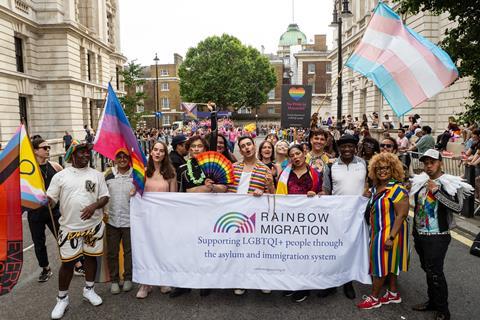
One of the most famous human rights charities is Reprieve. It is a legal action non-governmental organisation whose team of investigators, lawyers and campaigners fight for justice. The team defends people who are facing human rights abuses, often at the hands of powerful governments. As part of their investigations, the team uncovers evidence and reveals the truth about these abuses. The team challenges abuses in the courts in the UK and overseas. The Reprieve community puts the spotlight on cases of injustice, amplifying those cases in the media and by working with governments to improve legislation. Reprieve’s team fights for those who need it most – people on death row, people held without charge or trial, people tortured and people targeted by illegal and lethal drone attacks.
Some of the charities are small and pack a powerful impact. DAS (Disability Advice Service, East Suffolk), has been working at the heart of the East Suffolk community since 1985. DAS advises children and adults with disability-related issues, their family members and carers. The charity’s objective is: 'The relief of children and adults with disabilities and their carers in East Suffolk and nearby areas.' Some of their most frequent enquiries are benefits and appeals on housing and accessible transport. An example of their work tells us about Edith, who suffers from severe fibromyalgia and anxiety. When she was referred to DAS, Edith lacked the strength to handle her finances. Edith had been the victim of an abusive relationship which she had just left, making her feel very lost. Having originally helping her obtain an award three years before, DAS requested mandatory reconsideration of her award. During the 10-week wait for the outcome Edith showed increasing signs of distress. DAS stepped in to help with a crisis adviser, who listened and assured Edith she was no longer alone, that DAS could help, and slowly took Edith through the actions needed. Through DAS representation, she obtained a full reinstatement of her benefits without the need to go to an appeal tribunal.
Peace Brigades International works to protect human rights and environmental defenders at risk. Each day human rights defenders speak out for the rights of others and the future of our planet. They risk their livelihoods, their liberty and, in many cases, their lives. Attacks, abductions, and assassinations are on the increase, and thousands face threats, harassment, and wrongful arrest. PBI is unique in the way they offer protection. PBI volunteers stand alongside these activists, learn from them and work to ensure their voices are heard. The volunteers provide life-saving support to community leaders, environmentalists and other human rights defenders in some of the most dangerous contexts in the world, with teams of trained professionals and volunteers embedded in communities in Latin America, Asia and Africa. Dressed in the PBI t-shirts and indicating to all that they offer peaceful protection, volunteers ensure that lawyers at risk can attend court hearings in remote areas by notifying all the authorities that they will attend accompanied and expect security to prevent attacks. The bravery of those they protect is shared by the PBI volunteers.
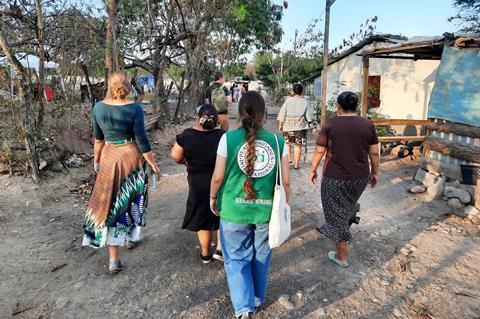
Norfolk Community Law Service is an oasis in an advice desert. The service is targeted at individuals and groups, particularly those who cannot afford access to justice and representation. This includes those with long term physical and/or mental ill-health, physical and sensory disabilities and/or learning difficulties, offenders, ex-offenders, migrant workers and others who are disadvantaged. They have a solid record of success, for example: £3.2m of welfare benefits awarded and paid back to clients with a 78% success rate at appeal tribunals. In the last year 139 people were represented at tribunal hearings. A further 64 people had their decisions overturned at the pre-tribunal appeal stage, at renewal claim, or on mandatory reconsideration stage. Over the past 10 years, the service has secured £15m for clients living in social housing, or in private rented accommodation, or living with family.
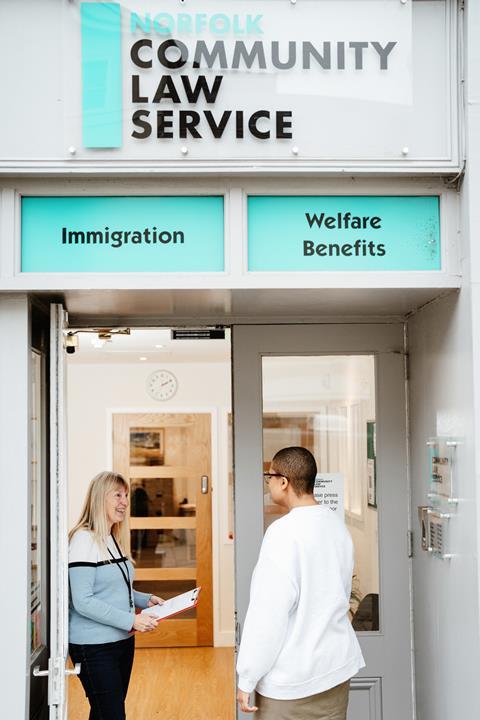
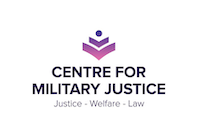
The Centre for Military Justice (CMJ) represents service personnel in the very closed environment of the British armed forces, who have suffered sexual harassment, sexual assault, racism or other abuse. They act for clients in Employment Tribunals, in judicial review challenges, HRA claims and inquests as well as by supporting clients through the forces’ own internal complaints processes. Recent successful cases have included the case of Black female Army instructor Kerry-Ann Knight who successfully took the Ministry of Defence to an ET for racial and sexual harassment; Dwight Pile-Gray who won his ET claim for racial discrimination and harassment; and T v Mod, that established that the MoD can no longer discriminate against veterans on the basis of their disability. The CMJ also undertakes wider advocacy in support of better access to justice and support for service personnel, particularly where they have been the victim of sexual offences, an issue that sadly continues to disproportionately affect service women.
Bail for Immigration Detainees (BID) aims to challenge immigration detention in the UK through the provision of legal advice, information, representation, research, policy advocacy and strategic litigation. As an NGO providing help for those who are locked up, they are desperately needed. The chief inspector of prisons expressed their concern in their 2022-2023 report: 'Detainees struggled to access legal advice: very few had been told that they were entitled to half an hour of free advice, and many prison and Home Office staff who we spoke to were not themselves aware of this entitlement. Perhaps most worryingly, vulnerable detainees, including victims of torture, were not routinely identified, nor their release considered ….'. There is a huge backlog of people awaiting an initial decision on their immigration cases. The team at BID say: 'What this means for BID’s clients is more misery with hundreds and thousands of people being accommodated in conditions that are tantamount to detention and subjected to surveillance, visible security, shared accommodation, lack of privacy, poor access to healthcare, legal advice and communications but without the limited safeguards that people in detention have.' The sheer scale of the backlog has generated significant costs for government.
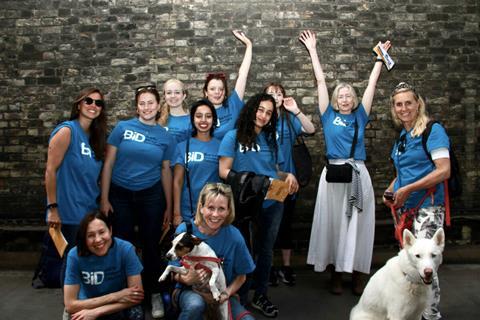
It is a tribute to the generosity of the profession that these organisations are able to fill gaps in legal services for vulnerable and excluded people in society, especially where there are advice deserts and little or no legal aid provision.
Joe Egan comments: 'The Charity is a safe and easy way to carry out the regulatory duty that solicitors have, to dispose of unclaimed Client Account balances. As we look forward to the next fifty, years I would urge all solicitors’ firms to consider donating them to the Charity to enable this valuable work to continue'.
Read more about the charity here































No comments yet